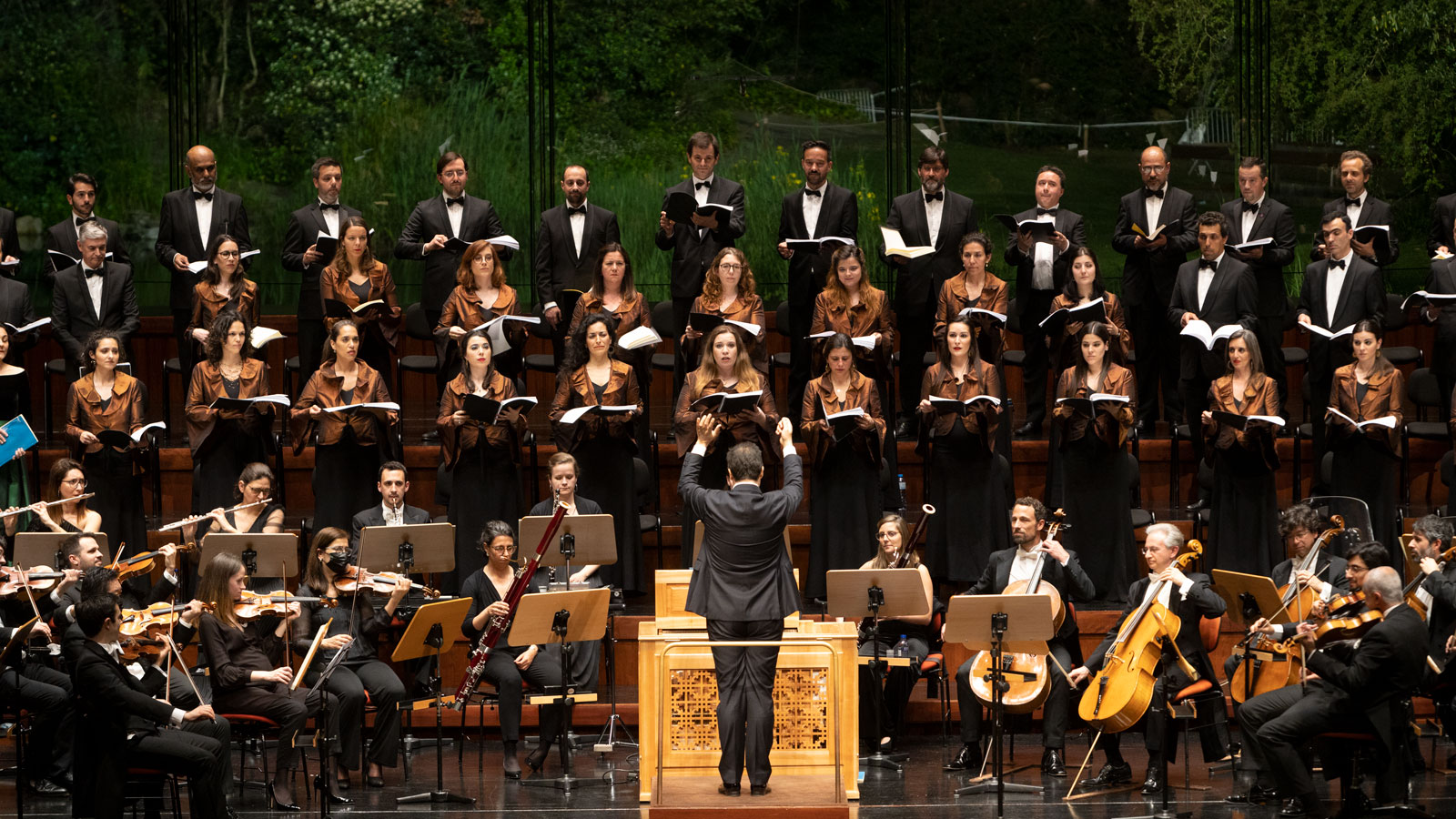Cappella Mediterranea
Monteverdi's Vespers
Event Slider
Date
- / Cancelled / Sold out
Location
Grand Auditorium Calouste Gulbenkian FoundationPricing
25% – Under 30
10% – Over 65
Cartão Gulbenkian:
50% – Under 30
15% – Over 65
- Conductor
- Soprano
- Soprano
- Countertenor
- Valerio Contaldo Tenor
- Tenor
- Bass-Baritone
- Rafael Galaz Ramirez Bass-Baritone
-
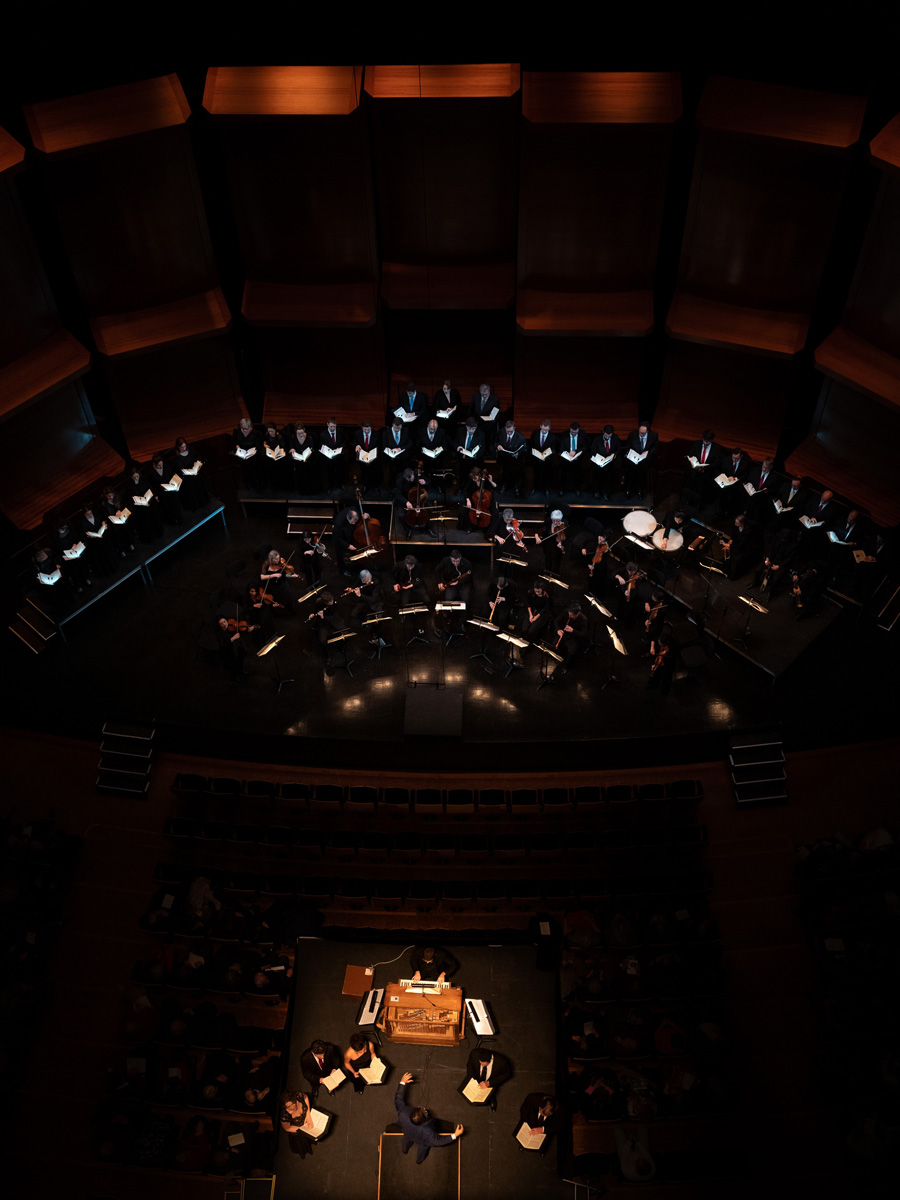
Cappella Mediterranea
In just under twenty years, Cappella Mediterranea has established itself as one of the most prominent ensembles performing baroque and classical music. Its qualities of sound, commitment, finesse and color are unanimously appreciated by the audiences that have the opportunity to hear it, and are acclaimed by critics everywhere.
Leonardo García Alarcón created this ensemble in 2005 to serve all the repertoires of the Latin world. From the madrigal repertoire to grand opera, Cappella Mediterranea performs with small or large forces depending on the works performed. Starting with the Italian and Spanish repertoires, the ensemble is led, in the impetus of its director's multiple curiosities, to interpret French, Flemish or Germanic composers.
If the intimate repertoire of madrigals by Claudio Monteverdi, Barbara Strozzi, Sigismondo d'India or Jacques Arcadelt highlights lute players, gambists or baroque violinists, gathered around the harpsichord and organ of Leonardo García Alarcón, it is undoubtedly the discovery or rediscovery of a wider repertoire that has established the international reputation of Cappella Mediterranea.
Thus, the re-creations of Michelangelo Falvetti's Il Diluvio Universale and Nabucco at the Ambronay Festival, followed by Antonio Draghi's El Prometeo, Francesco Sacrati's La Finta Pazza, and Luigi Rossi's Il Palazzo Incantato at the Dijon Opera (before revivals in Nancy, Geneva, and at the Opéra Royal de Versailles) revealed to the public previously unpublished or unknown works, essential milestones in the history of the opera.
In this repertoire, the musicians of Cappella Mediterranea participate in Leonardo García Alarcón's research into the ideas of authenticity, articulation, and musical incarnation. His attraction to all forms of theatricality has led them to participate together in Rameau's astonishing Indes galantes, choreographed by Bintou Dembélé and directed by Clément Cogitore, which triumphed at the Opéra Bastille in 2019, or in a rereading of Lully's Atys, choreographed and directed by Angelin Preljocaj (Geneva and Versailles 2022).
These escapades into French music should not obscure what remains the core of Cappella Mediterranea's repertoire, namely Monteverdi, with first and foremost L'Orfeo, which has been revived many times (and recorded with Valerio Contaldo in the title role), and L'Incoronazione di Poppea (Aix-en-Provence 2022, revival at Versailles in January 2023), but also Francesco Cavalli: the ensemble participated in Elena (Aix-en-Provence 2013), Eliogabalo in 2016 at the Paris Opera, Il Giasone (Geneva 2017) and Erismena (Aix-en-Provence 2017).
The sacred repertoire is another axis of the ensemble. Monteverdi's Vespro della Beata Vergine and Bach's Mass in B minor and St. Matthew Passion have left the memory of particularly intense moments, thanks in particular to the collaboration of the ensemble with the Chamber Choir of Namur, of which Leonardo García Alarcón is the artistic director since 2010.
More recently, the ensemble opened up to the contemporary repertoire with Leonardo García Alarcón's first major composition: the oratorio La Passione di Gesù, a powerful and very personal work, which was enthusiastically received in Ambronay and Geneva in the fall of 2022, and will be performed at the Festival de Saint-Denis and at the Namur Concert Hall in June 2023.
Among the major projects for 2023 are the premieres of Il Dono della Vita Eterna, an oratorio by Antonio Draghi, and La Jérusalem Délivrée, an opera by Philippe d'Orléans with the Centre de Musique Baroque de Versailles.
Cappella Mediterranea's discography includes more than 30 critically acclaimed recordings for Ambronay Editions, Naïve, Ricercar and Alpha Classics. In 2021, has been released Monteverdi's L'Orfeo and Sigismondo d'India's Lamenti & Sospiri with Mariana Flores and Julie Roset, and in 2022 Sacrati's La Finta Pazza with Mariana Flores, a world premiere. In 2023, Amore Siciliano, a "little Tosca" is scheduled to be released, based on the music of 17th and 18th century Italy.
Cappella Mediterranea is supported by the Ministry of Culture - DRAC Auvergne Rhône Alpes, the Auvergne-Rhône-Alpes Region, the City of Geneva, a Swiss family foundation, a Geneva private foundation, and by its Circle of Friends and its Circle of Entrepreneurs with Diot-Siac, Chatillon Architects, Synapsys, Quinten and 400 Partners.
Madame Aline Foriel-Destezet is the main sponsor of Cappella Mediterranea.
Cappella Mediterranea is a member of the Fevis (Federation of Specialized Vocal and Instrumental Ensembles) and CNM (National Center of Music).
-
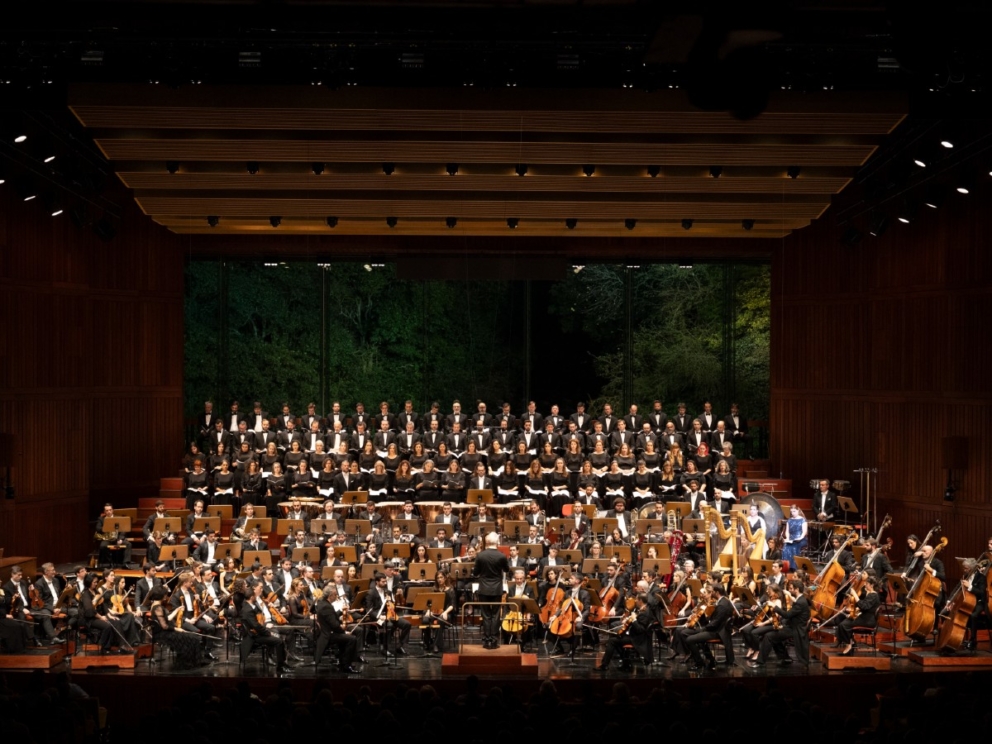
Gulbenkian Choir
Coro Gulbenkian was founded in 1964 by the Calouste Gulbenkian Foundation as a full symphonic body of around 100 singers. The choir joins the Orquestra Gulbenkian and other orchestras to perform Classical, Romantic and Contemporary choral-symphonic repertoire, but can also perform a cappella. It has performed – and often premiered – many 20th century works by Portuguese and international composers.
Coro Gulbenkian has been invited to collaborate with major international orchestras, under the direction of conductors such as Claudio Abbado, Colin Davis, John Nelson, Emmanuel Krivine, Esa-Pekka Salonen, Frans Brüggen, Franz Welser-Möst, Gerd Albrecht, Michael Gielen, Michael Tilson Thomas, Rafael Frübeck de Burgos, René Jacobs and Leonard Slatkin, among others.
Besides its regular season of concerts in Lisbon and frequent national tours, Coro Gulbenkian has repeatedly toured Argentina, Belgium, Brazil, Canada, Denmark, France, Germany, Hungary, India, Iraq, Israel, Italy, Japan, Macao, Malta, Monaco, Netherlands, Spain, the United Kingdom, the United States of America and Uruguay.
Coro Gulbenkian has recorded extensively for Philips, Deutsche Grammophon, Erato, Cascavelle, Musifrance, as well as FNAC-Music, performing a wide range of repertoire, from Early-Renaissance polyphony to Xenakis. Several of these albums received international awards.
Michel Corboz was the Principal Conductor between 1969 and 2019. Jorge Matta and Inês Tavares Lopes are currently the Associate and Assistant conductors, respectively.
-
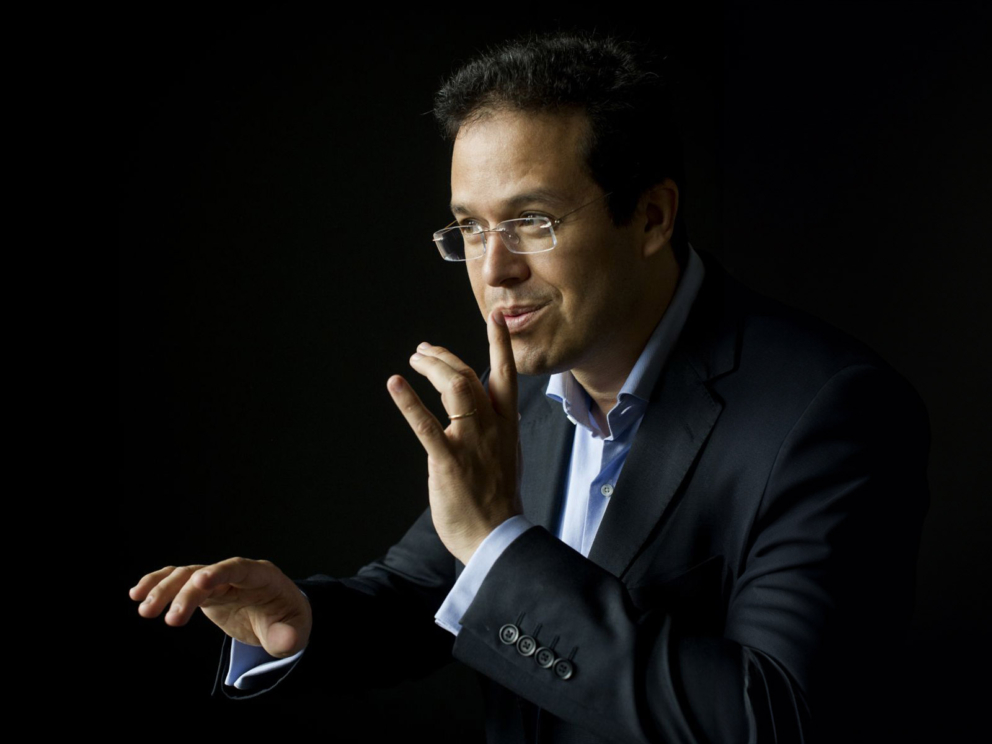
Leonardo García Alarcón
Conductor
After studying piano in Argentina, Leonardo García Alarcón moved to Europe in 1997 and joined the Geneva Conservatory in the class of harpsichordist Christiane Jaccottet. Leonardo García Alarcón emerged in a few years as the leading conductor of the baroque world. Argentinian by origin and holder of both Swiss and Argentinian nationality, he is coveted by the greatest musical and lyrical institutions, from the Paris Opera to the Teatro de la Zarzuela in Madrid and the Grand Theatre in Geneva, the city where he made his first appearance. It was under the guidance of Gabriel Garrido that he embarked on the baroque adventure, while also receiving the support of John Eliot Gardiner and Philippe Herreweghe.
Under the patronage of these established masters, he created about ten years ago his ensemble Cappella Mediterranea, following by the foundation of the Millennium Orchestra, which he also founded to accompany the Namur Chamber Choir, of which he took over the conductorship in 2010, one of the best baroque choirs in existence. He is divided between Geneva, France (notably as an assiduous pillar of the Ambronay Festival and, since this year, artist in residence at the Opéra de Dijon), Belgium, but also with sporadic visits to his native South America. A form of geographical eclecticism, to which his repertoire corresponds. With a taste and a vocation to bring back to life unknown works from Cavalli, Sacrati, Draghi, Falvetti. This is how we owe the reinstatement of Cavalli's operas: Eliogabalo, to open the Paris Opera season in 2016, Il Giasone in Geneva and Erismena at the 2017 Festival d’Aix-en-Provence, El Prometeo by Antonio Draghi in 2018 at the Opéra de Dijon or the recent rediscovery (also at the Opéra de Dijon) of Francesco Sacrati's La finta pazza, the very first opera imported to Paris. As a conductor or harpsichordist, he is invited by festivals, concert halls and orchestras all over the world.
In November 2018, he conducted Monteverdi's Orfeo in the staging of Sasha Waltz at the Berlin Staatsoper Berlin. In September 2019, triumphed with Rameau’s Les Indes Galantes at the Opéra Bastille on the occasion of the 350th anniversary of the Royal Academy of Music.
His discography has been unanimously acclaimed by critics. In September 2016, I 7 Peccati Capitali was released by Alpha Classic: an imaginary programme based on Monteverdi's tunes, hailed by the press and nominated in the "best recording" category at the “Victoires de la Musique” 2017. In 2018, he recorded sacred works by Jean-Baptiste Lully, an album around Joan Manuel Serrat and a set of works by Jacques Arcadelt, which received great critical acclaim. The opera production of Il Giasone from Geneva was released on DVD by Alpha Classics in February 2019.
In June 2019, Leonardo García Alarcón was made Chevalier de l’Ordre des Arts et des Lettres by the French government.
-
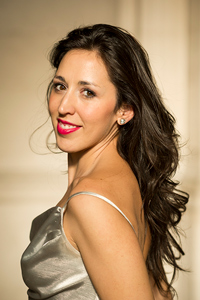
Mariana Flores
Soprano
The Argentinian soprano Mariana Flores studied singing at the University of Cuyo, then went on to advanced study with Rosa Domínguez in Basel and at numerous masterclasses throughout Europe.
Mariana has now become established as a key interpreter of the Baroque repertory. She performs and records regularly with such leading figures as Leonardo García Alarcón, John Eliot Gardiner, Christina Pluhar, Manfred Kraemer...
Since her Australian tour of 2015, she has now sung on every continent, in the most prestigious venues and festivals of the Baroque universe. In March 2016, Mariana Flores made her debut at the Teatro Zarzuela de Madrid in two operas by Sebastían Duron. The press greeted her performances with dithyrambic reviews. In September 2016 she appears on the stage of the Palais Garnier in Paris in Cavalli ’s Eliogabalo.
She is Alinda in Cavalli’s Il Giasone, at the Opera of Geneva and Versailles in 2017. Then Tétis in the world premiere of Draghi’s El Prometeo at the Dijon Opera in 2018. In 2019 she once again won over audiences and critics as Deidamia in Sacrati’s La Finta Pazza in Dijon, Geneva and Versailles.
The release of Francesco Cavalli’s CD Teatro dei Sensi, his great solo recital, in autumn 2015 received the highest press awards (Classica’s Choc of the Year and Diapason d’or). In 2016, she signed with Cappella Mediterranea, Monteverdi’s Peccati Capitali which was nominated for the 2017 Victoires de la Musique and won several awards, including the Diamant d’Opéra Magazine.
Mariana regularly gives her successful programs: Monteverdi a voce sola and L’Arte di Amare, a concert around Strozzi and Cavalli, released on CD.
She participates in recordings of Cappella Mediterranea such as Arcadelt’s Madrigals, (Diapason d’or)in 2018, De vez en Cuando la Vida, Joan Manuel Serrat y el siglo de oro.
In 2017, Monteverdi’s Orfeo tour brought her back to Argentina at Teatro Colón where she also sang Falvetti’s Il Diluvio Universale.
-
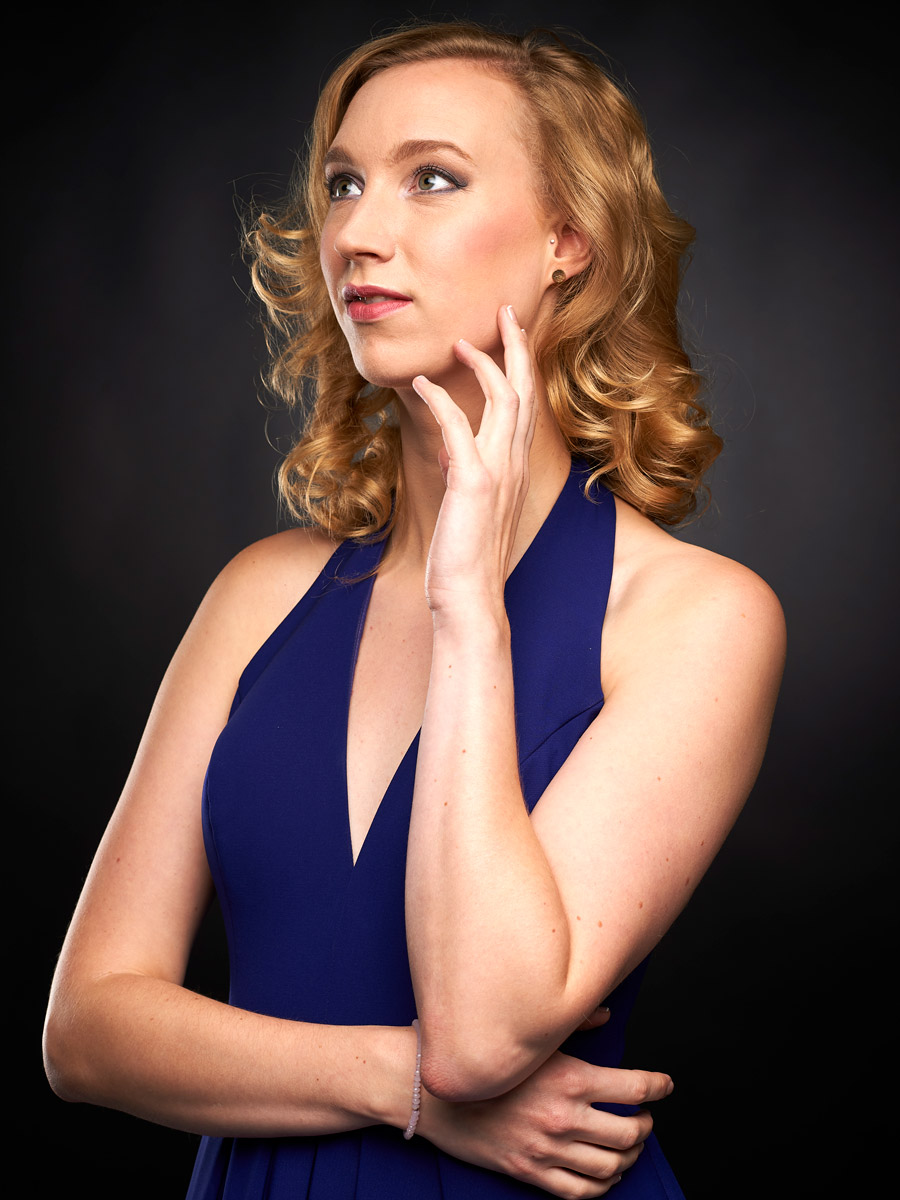
Deborah Cachet
Soprano
Deborah Cachet, hailed by Gramophone as “an immensely pleasing and confident soprano – a voice to listen out for”, is proclaimed as the Young Promise of the year 2020 by Klara Radio. The Belgian soprano is a laureate of Le Jardin des Voix 2019, the young artists programme of Les Arts Florissants. She is in high demand with prominent period ensembles such as Les Talens Lyriques, Les Arts Florissants, Akademie für Alte Musik Berlin, Collegium 1704, Le Poème Harmonique, il Gardellino and Holland Baroque, performing at concert halls such as Theater an der Wien, Musikverein, Zaryadye Concert Hall, Forbidden City Concert Hall, Wigmore Hall, Philharmonie de Paris, Théâtre des Champs-Elysées, Bozar, Château de Versailles and festivals such as French May (Hong-Kong), Festival de Saintes, Festival van Vlaanderen, Utrecht Early Music Festival, Rheingau Festial, Innsbrucker Festwochen für Alte Musik, among others.
In the 2022/23 season, sings the role of Procris in Jacquet de la Guerre’s opera Céphale and Procris, with ensemble A nocte temporis in Brussels, Versailles and Namur. With Les Talens Lyriques and Christophe Rousset, she performs and records Lully’s Thésée (role: Églée), and with Il Gardellino she sings Membra Jesu Nostri by Buxtehude, among other highlights. With theorbist Sofie Vanden Eynde she performs a number of intimate solo recitals with a programme of French airs de cour.
Last season, she made her house debut at the Opéra de Nice in the role of Théone in Lully’s opera Phaéton, and she performed the roles of Auglaure and Nymphes in Lully’s Psyché at the Theater an der Wien and Opéra Royal de Versailles with Les Talens Lyriques. On the concert stage, she sang the soprano solo in Händel’s Messiah with Collegium 1704 and in Händel’s Dixit Domunus. With Il Gardellino, she also presented a solo cantata programme of Bach and Händel at Vantaa Baroque Festival, Zentrum für Alte Musik and in Brussels.
Her performed opera roles include Helena in A Midsummer Night's Dream at the Opera de Tours, the roles of Procri, Musa and Ninfa in Gli amori d'Apollo e di Dafne at the Innsbrucker Festwochen für Alte Musik as well as Dido in Dido and Aeneas and Didon in Desmarest's Didon et Énee with Paul Agnew and the Festival d'Ambronay Baroque Academy and Arminda in La finta Giardiniera with Les Arts Florissants. She recently impressed as Alphise (Les Boréades) with Collegium 1704 and was praised by the international press as “A dream Alphise” (Forum Opéra). Other highlights included performances as La Statue in Rameau's Pygmalion with Paul Agnew and Akademie für Alte Musik Berlin, Leçons de ténèbres with Les Talens Lyriques as well as with Le Poème Harmonique, the unique experience of the crossover production Amor with dancer Michèle Anne De Mey and director Jaco Van Dormael at Festival van Vlaanderen, and last but not least Cherubino in Le Nozze di Figaro with René Jacobs and Bach cantatas with Raphaël Pichon and Christian Immler at the Abbaye de Royaumont.
Her discography includes Les Boréades with Collegium 1704, Ballet royal de la Naissance de Vénus and Acis et Galatée (release October 2022), both by Lully, with Les Talens Lyriques and Christophe Rousset, Nisi Dominus with Le Poème Harmonique, Stravaganza d'Amore with Pygmalion and Raphaël Pichon, La Maddalena (A. Bertali), Petits Motets II (H. Fiocco), Dialoghi Amorosi (G.F. Sances) and O Penosa Lontananza (A. Scarlatti) all with the ensemble Scherzi Musicali and Nicolas Achten, Anamorfosi with Le Poème Harmonique and Vincent Dumèstre, Orphée aux enfers (Charpentier) with A Nocte Temporis and Vox Luminis and Brabant 1653 with Holland Baroque. This season, Passacaille records releases her first solo album La chambre bleue with Sofie Vanden Eynde.
Deborah studied in Leuven at Luca School of Arts with Gerda Lombaerts and Dina Grossberger and at the Conservatorium van Amsterdam with Sasja Hunnego, after which she continued to perfect her vocal technique with Rosemary Joshua. She won first prizes at the Concours International de Chant Baroque de Froville (2015), the New Tenuto competition (2013) and was a finalist of the 8th Antonio Cesti Competition.
-
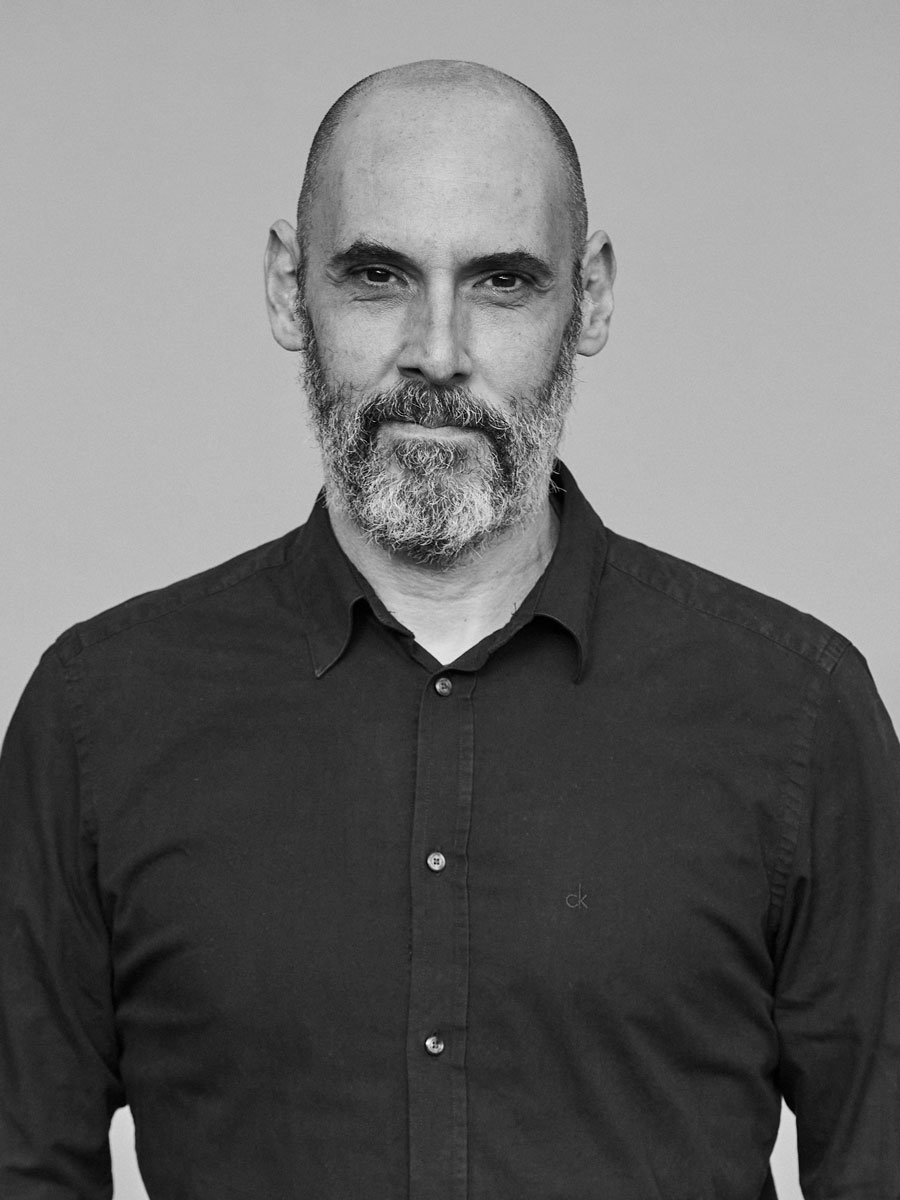
David Sagastume
Countertenor and cellist
He has performed as a countertenor, both live and on recordings, with the Ricercar Consort, La Cappella Mediterranea, Les Sacqueboutiers de Toulouse, the Ensemble Gilles Binchois, and La Grande Chapelle, among others. He has been a member of the Capella Reial de Catalunya, directed by Jordi Savall, since 1998.
Also as a soloist with many groups, including the Orchestra of the Age of Enlightenment, Concert Français, Café Zimmerman, the Netherlands Bach Society directed by Gustav Leonhardt, and the Euskal Barrokensemble directed by Enrike Solinís.
What is less well known is that his true passion, which he has dedicated many years to, is playing the cello. He enjoys it so much that he received the extraordinary prize in his promotion’s final exam (he was born in 1972). At the same time, he studied harpsichord, viola da gamba, chamber music, and composition, as well as singing studies with R. Levitt and Carlos Mena, but playing the cello is what he enjoys the most in the world.
During his studies, he was a member of the “Jesús Guridi” Instrumental Ensemble, which was primarily dedicated to the interpretation of music from the 20th and 21st centuries, as well as a member of the Euskal Herria EGO Youth Orchestra for several years. He frequently worked with the Euskadi Symphony Orchestra.
He has sung in venues as diverse as the Sydney Opera House, the Palace of Versailles, Carnegie Hall in New York, Walt Disney Concert Hall in Los Angeles, the Chicago Symphony, the Paris Philharmonie, the Palau de la Música in Barcelona, the Konzerthaus in Vienna, the Concertgebouw in Amsterdam, and the Chiquitos Missions in Bolivia, the Cartagena de Indias Festival, the Alhambra in Granada, and the Royal Palace in Fez.
He is a founding member of the group “Intonationes”, which specialises in the interpretation of Hispanic polyphonic repertoire from the 16th and 17th centuries.
-
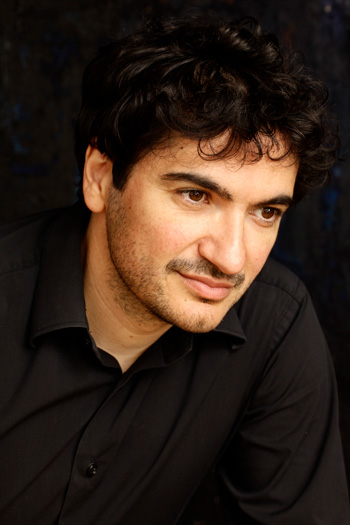
Mathias Vidal
Tenor
Mathias Vidal studied Musicology at the University of Nice and studied singing with teacher Christiane Patard. He graduated from the Paris Conservatory in 2003.
Praised for his qualities in the French repertoire, he took part in many operas by Rameau, Lully, Campra, Boismortier and also Monteverdi, Purcell, Cavalli… In the French light-music repertoire, he sang in such productions as Orphée aux Enfers, La Vie Parisienne, La Périchole, Fra Diavolo, La Belle Hélène, La Veuve Joyeuse, Le Dilettante d'Avignon, Barbe-Bleue, Les Chevaliers de la Table Ronde, La Fille de Madame Angot, L'Auberge du Cheval Blanc... His repertoire also includes Italian bel-canto roles such as Nemorino from L'elisir d'amore, Ernesto from Don Pasquale, Elvino from La sonnambula, Almaviva from Il Barbiere di Siviglia, Ramiro from La Cenerentola and the title-role of Le Comte Ory. He also sings the French romantic repertoire together with the 20th century and contemporary pieces.
In the past few seasons, he was heard in the role of Abaris from Les Boréades (Oldenburg, Dijon), Valère and Tacmas from Les Indes Galantes, Thespis from Platée and Der vierte Jude from Salomé (Paris Opera), Tamino from Die Zauberflöte (Avignon, Versailles), Ferrando from Cosí fan tutte (Toulouse), Ernesto from Don Pasquale (Oldenburg), Aristée/Pluton from Orphée aux Enfers (Komische Oper Berlin) as well as many title-roles : Platée, Orlando Paladino, Orphée et Eurydice, Le Comte Ory, Cinq-Mars, Faust, Der Zwerg...
He is very much in demand on the lyric stages in France as in the rest of Europe, Asia, the US and in Russia. He regularly takes part in live and studio recordings in a broad and versatile repertoire.
His projects for season 2023-2024 include Nadir from Les Pêcheurs de perles at the Capitole in Toulouse, the title-role in Platée at the Zürich Opera, Don Quichotte chez la Duchesse in Versailles, Abaris from Les Boréades in Oldenburg, the title-role in Atys by Lully (Avignon, Tourcoing, Théâtre des Champs-Elysées), Belmonte from Die Entführung aus dem Serail (French version) in Versailles as well as many concerts (Lélio by Berlioz with the Toulouse Capitole National Orchestra, Les Indes Galantes by Rameau with La Cappella Mediterranea at the Gulbenkian in Lisbon and several series with the Stradivaria ensemble, Le Palais Royal, La Chapelle Harmonique...).
-
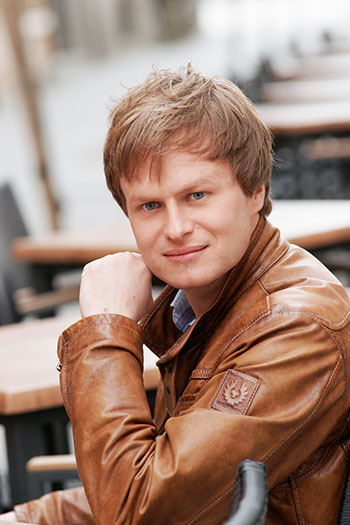
Andreas Wolf
Bass Baritone
Young German Bass-Baritone Andreas Wolf is a regular guest at major international opera houses and concert halls, working with conductors such as William Christie, René Jacobs, Marcus Creed, Helmut Rilling, Jérémie Rhorer, Raphaël Pichon, Peter Dijkstra, Jean-Christophe Spinosi, Alessandro De Marchi, Jordi Savall, Eduardo López Banzo, Andreas Spering, Paul Goodwin, Bertrand de Billy and Sylvain Cambreling.
Recent highlights include Guglielmo in Michael Haneke’s production of Cosi fan tutte at Teatro Real in Madrid, La Monnaie in Brussels and the Wiener Festwochen, returns to La Monnaie as Leporello in Don Giovanni, and to Madrid as Figaro in Le Nozze di Figaro, and a series of productions at Bayerische Staatsoper Munich, including Truffaldin in Ariadne auf Naxos, Zuniga in Carmen and Paolo Calvi in a new production of Die Gezeichneten.
Other opera appearances include Leporello at the Tchaikovsky Concert Hall in Moscow, Papageno in Die Zauberflöte at Grand Théâtre de Genève, Figaro at the at the Opera national du Rhin Strasbourg, Falke in Die Fledermaus, Jupiter in Platée and Leporello, all at Oper Stuttgart, Elviro in Handel’s Serse at the Theater an der Wien, Zoroastre in Handel’s Orlando at Scottish Opera and Komische Oper Berlin, Man/Ephraimite in a concert-performance of Moses und Aron with the
SWR Sinfonieorchester Baden-Baden und Freiburg at Teatro Real Madrid and the Philharmonie in Berlin, Littore and Tribuno in Monteverdi’s L'incoronazione di Poppea at Theater an der Wien, Curio in Handel’s Giulio Cesare at Salle Pleyel in Paris, alongside Cecilia Bartoli, Aeneas in Dido and Aeneas in New York and Moscow with Les Arts Florissants, Clito in Handel’s Alessandro nell'Indie at Beaune Festival and Nanni in Joseph Haydn’s L’Infedelta delusa for the Festival d’Aix-en-Provence.
A sought-after concert artist, Mr Wolf has performed Handel's Belshazzar with the RIAS Chamber Choir and Akademie fuer Alter Musik Berlin at the Festivals in Salzburg and Beaune, in Oslo, Cologne and the Berliner Philharmonie, JS Bach’s Messe in h-moll with the Bavaria Radio Choir under Peter Dijkstra at the Rheingau-Musikfestival and in Munich, Mozart’s Great Mass in c-minor, also with the Akademie für Alte Musik Berlin, at Teatro alla Scala in Milan and Teatro Regio di Torino, Bach cantatas with Bach-Collegium Stuttgart and conductor Hans- Christoph Rademann, Mozart’s Krönungsmesse with the Düsseldorfer Symphoniker conducted by the late Sir Neville Marriner, Johann Christian Bach’s Requiem and Haydn’s Stabat Mater with Concerto Köln, Handel’s Apollo e Dafne with the NDR Radiophilharmonie Hannover, Bach’s Matthäus-Passion with the Amsterdam Baroque Orchestra and Ton Koopman, his Weihnachtsoratorium with the Gothenburg Symphony Orchestra and with Concerto Köln, Handel’s Messiah at Konzerthaus Dortmund under Andrea Marcon and at the Festival de Beaune with l'Ensemble Matheus, Mozart’s Requiem at the festival in Lessay with Le Cercle de l’Harmonie, Apollo in Apollo e Dafne, conducted by Rinaldo Alessandrini, for the Handelfestspiele Karlsruhe and Handel’s L'Allegro, il Penseroso ed il Moderato at the Bachfest Stuttgart.
Recordings include Haydn’s Jubilaeum Virtutis Palatium with Capella Augustina, Johann Ludwig's Trauermusik and Handel’s Ode for the Birthday of Queen Anne, both with Akademie für Alte Musik Berlin and all for Harmonia Mundi. A recording of Bach cantatas with the Freiburger Barockorchester and Carolyn Sampson was released in spring 2017.
Highlights in the 2018/19 season include his house debut at Semperoper Dresden as Jupiter in Platée, Bach’s Weihnachtsoratorium with the BR Choir and Peter Dijkstra, the Messe in h-moll with Concerto Köln at Hamburg’s Elbphilharmonie,
Mozart’s Requiem with the Nederlandse Kamerkoor, Berlioz’ Messe Solennelle with Le Concert Spirituel and concerts with the Bachakademie Stuttgart and at the Bachfest Leipzig.
Claudio Monteverdi
Vespro della beata Vergine
Conductor Leonardo García Alarcón founded the instrumental and vocal ensemble Cappella Mediterranea in 2005, interested in researching and deepening involvement with Latin Baroque music. Monteverdi’s work has, naturally, been one of the points of greatest attention in the activity of the Cappella Mediterranea. They present in the Grand Auditorium, in collaboration with the Gulbenkian Choir, one of the most innovative and majestic creations of the Baroque repertoire, Vespers. In a stunning exploration of various choral registers, Monteverdi has erected a passionate and engaging masterpiece.
Sponsor Gulbenkian Music
The Calouste Gulbenkian Foundation reserves the right to collect and keep records of images, sounds and voice for the diffusion and preservation of the memory of its cultural and artistic activity. For further information, please contact us through the Information Request form.

